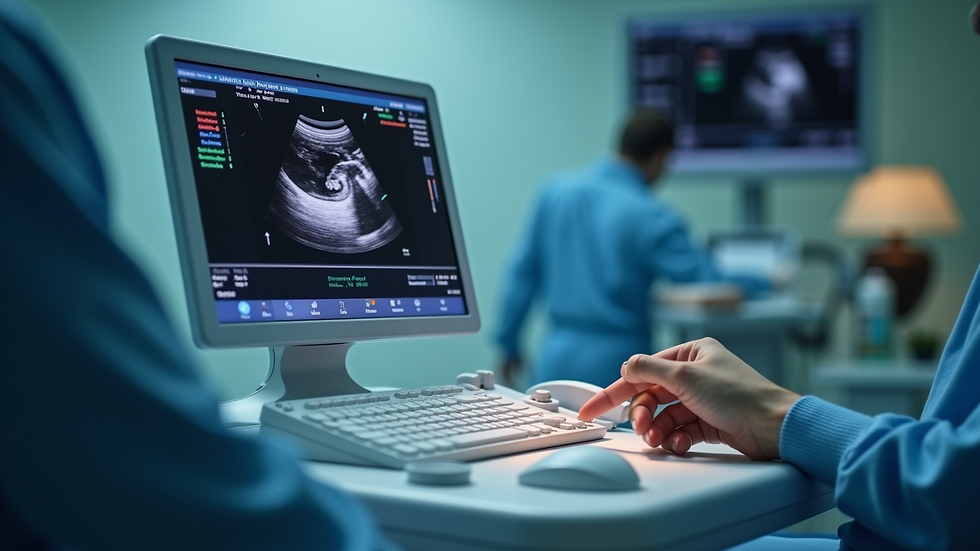Discover the Power of Hands-On Workshops
- Asian Pain Academy

- Nov 24, 2025
- 3 min read
When it comes to mastering complex skills, especially in healthcare, theory alone often falls short. I’ve found that practical learning workshops provide an invaluable bridge between knowledge and real-world application. These sessions offer a dynamic environment where participants can engage directly with the material, tools, and techniques they need to excel. If you’re involved in pain management or any specialized medical field, understanding the benefits of such workshops can transform your approach to professional development.
Why Practical Learning Workshops Matter
Practical learning workshops are designed to immerse participants in active learning. Unlike traditional lectures, these workshops emphasize doing rather than just listening. This approach is particularly effective in healthcare, where hands-on experience can significantly improve clinical skills and patient outcomes.
For example, in pain management, understanding the nuances of nerve blocks or medication administration requires more than textbook knowledge. Workshops allow you to practice these techniques under expert supervision, reducing the risk of errors when applied in clinical settings.
Some key advantages include:
Immediate feedback from instructors and peers
Enhanced retention of complex procedures
Opportunity to ask questions and clarify doubts in real time
Networking with professionals who share your interests
This active engagement helps solidify concepts and builds confidence, which is crucial when dealing with sensitive patient care scenarios.

How Practical Learning Workshops Enhance Skill Development
The structure of practical learning workshops is tailored to maximize skill acquisition. Typically, these sessions combine brief theoretical overviews with extensive hands-on practice. This blend ensures that participants understand the rationale behind each procedure before performing it themselves.
In pain management, for instance, workshops might cover:
Anatomy and physiology relevant to pain pathways
Techniques for administering nerve blocks
Use of ultrasound guidance for precision
Patient assessment and monitoring
By practicing these skills in a controlled environment, you can refine your technique without the pressure of a real clinical setting. This reduces anxiety and builds muscle memory, which is essential for performing procedures safely and effectively.
Moreover, many workshops incorporate case studies and simulations that mimic real-life scenarios. This contextual learning helps you develop critical thinking and decision-making skills, which are vital when managing complex pain cases.
Exploring Hands-On Workshops in Pain Medicine
If you’re looking to deepen your expertise in pain management, I highly recommend exploring hands-on workshops offered by specialized institutions. These workshops focus on practical skills that are immediately applicable in clinical practice.
For example, the Asian Pain Academy offers workshops that cover basic pain medicine techniques, including nerve blocks and pharmacological management. Participants benefit from:
Expert-led sessions with experienced pain specialists
Small group sizes for personalized attention
Access to advanced simulation tools
Comprehensive course materials for ongoing reference
Such workshops not only improve your technical skills but also enhance your understanding of pain mechanisms and treatment strategies. This holistic approach ensures you’re better equipped to provide effective patient care.

Practical Tips for Maximizing Workshop Benefits
Attending a practical learning workshop is just the first step. To truly benefit, consider these actionable recommendations:
Prepare in advance: Review relevant theory and guidelines before the workshop. This will help you focus on skill acquisition during the session.
Engage actively: Ask questions, participate in discussions, and seek feedback on your technique.
Practice consistently: Use any available simulation tools or practice kits after the workshop to reinforce your skills.
Network: Connect with instructors and peers to share experiences and resources.
Reflect: After the workshop, evaluate what you learned and identify areas for further improvement.
By approaching workshops with a proactive mindset, you can maximize your learning and translate it into better clinical practice.
The Future of Professional Development in Healthcare
As healthcare continues to evolve, so does the need for effective training methods. Practical learning workshops represent a shift towards more interactive, learner-centered education. They complement traditional learning by providing the hands-on experience necessary to master complex procedures.
In pain management, where patient safety and comfort are paramount, these workshops play a critical role. They help bridge the gap between theory and practice, ensuring that healthcare professionals are confident and competent.
If you haven’t yet experienced a practical learning workshop, I encourage you to explore available options. The investment in your skills will pay dividends in improved patient care and professional satisfaction.
Practical learning workshops are more than just training sessions - they are transformative experiences that empower healthcare professionals to deliver better outcomes. Whether you’re new to pain management or looking to refine your skills, these workshops offer a clear path to mastery. So why wait? Dive into the world of practical learning and see the difference it can make in your career.
.jpg)



Comments